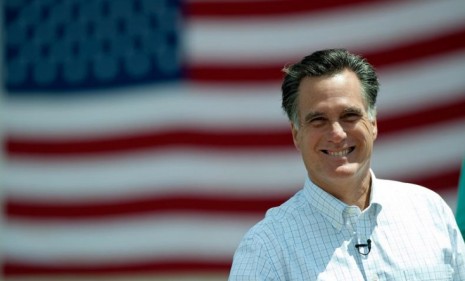Will Florida's primary shuffle help Mitt Romney?
The Sunshine State is poised to scramble the 2012 GOP race by leapfrogging other early voting states — throwing the primary calendar into disarray

A free daily email with the biggest news stories of the day – and the best features from TheWeek.com
You are now subscribed
Your newsletter sign-up was successful
Florida is going rogue. Under Republican National Committee rules, only four states — Iowa, New Hampshire, South Carolina, and Nevada — are allowed to hold their presidential nominating contests before March 6. But Florida wants to jump ahead with a Jan. 31 primary. If that happens, all four early-voting states would likely reschedule to ensure they go before Florida, pushing several nominating contests into January 2012 — and maybe even December 2011. Which GOP frontrunner would benefit from that calendar shuffle — Mitt Romney or Rick Perry?
This is good news for Mitt: The big winner of this calendar change is once-and-future frontrunner Mitt Romney, argue Ben Smith and Emily Schultheis at Politico. Perry has "just one clear path" to the nomination: "To blow the doors off the race with early momentum and never let up." That might not be easy with a compressed early calendar. Unlike early states like Iowa and South Carolina where Perry is favored, Romney stands a good chance of winning Florida (not to mention New Hampshire and Nevada). If Florida prevents Perry from locking up the nomination early, the race could become a "long, expensive trek" through the spring — and that's great news for the slow-and-steady Romney.
"Complex calendar gives Mitt edge"
The Week
Escape your echo chamber. Get the facts behind the news, plus analysis from multiple perspectives.

Sign up for The Week's Free Newsletters
From our morning news briefing to a weekly Good News Newsletter, get the best of The Week delivered directly to your inbox.
From our morning news briefing to a weekly Good News Newsletter, get the best of The Week delivered directly to your inbox.
Nonsense — this helps Perry: If Florida follows through with this change, the Sunshine State becomes nearly irrelevant, says Joel Gehrke at The Washington Examiner. The RNC would punish Florida by halving its delegates at the nominating convention. Plus, all nominating contests before April 1 will divide their delegates proportionally — it's no longer winner-take-all. That means the winner of Florida could take as few as 14 of the state's 99 delegates. Thus, given his current weakness in the polls, "Perry would likely benefit" from the shift. If Florida mattered, and Perry lost, he'd be toast. Now, "Perry might survive even losing in Florida."
"Fla. primary move hurts Fla., helps Perry"
The race is too fluid to judge Florida's impact: Let's not be "so quick to make the 2012 Republican presidential nomination into a two-man race" between Romney and Perry, says Colbert King at The Washington Post. At this point four years ago, who was ahead? Rudy Giuliani, with John McCain a distant second and Romney in fourth place. So whatever Florida does, "it's too soon to place your bets. Unless you've got money to burn."
"The GOP primary isn’t a two-man race yet"
A free daily email with the biggest news stories of the day – and the best features from TheWeek.com